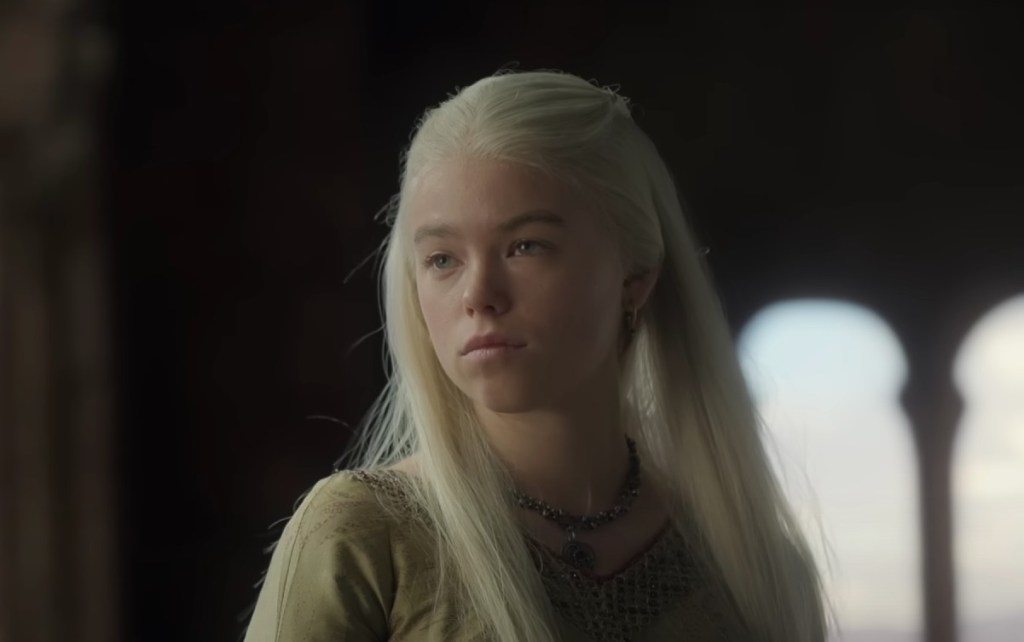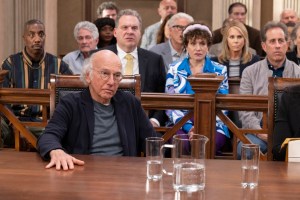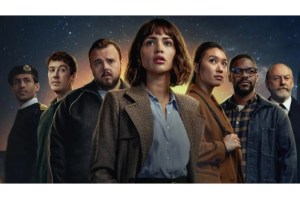I realize this is an unpopular opinion, but I actually didn’t hate the ending of Game of Thrones.
Sure, the showrunners fumbled some of the character arcs and made some odd decisions (King Bran? Really?). But the broad thematic arc of the series was perfect. Daenerys’s dark turn into madness and mass murder and the subsequent destruction of the Iron Throne served as a hopeful proclamation that, even in our bloody, jaded, pornified world, the true faith lives on. The show understood, on some level, that neither the ideal redistribution of power nor its unfettered aggrandizement could ever be our salvation.
Martin made his name as the anti-Tolkien, but it was all a ruse. If his intentions were truly insidious, his story would “look fairer and feel fouler.” In the end — assuming that his books will conclude more or less as the series did — all he gave us was Tolkien with extra gore and tits. And God bless him for it. We need to be reminded endlessly, in every generation’s idiom, of that primal humility which forms the core of conservatism and in defense of which Tolkien crafted his legendarium. As Eliot put it, “There is only the fight to recover what has been lost / And found and lost again and again: and now, under conditions / That seem unpropitious.”
True victory, Tolkien and Martin tell us, consists in destroying the Ring/Throne, not in making sure that it’s on the right person (or that the right person is on it). That message is sorely needed today precisely because it’s so countercultural. The conditions are, indeed, unpropitious. Our society is obsessed with power. The critical race and gender theorists, the technocratic transhumanists, and even many of the traditionalists want nothing more than to seize the Ring for themselves. GoT’s critics complain about the gratuitous sex and violence, and they have a point. But it’s encouraging to be reminded that, amid all the brutality and lasciviousness, right is still right and north is still north. I wonder if, for the generation striving for truth and purity as they come of age under a deluge of smartphone porn, Middle Earth might not seem a little too clean.
I was also pleasantly surprised by how the GoT finale subverted the girl boss archetype Daenerys had become. For eight seasons, she was a strong independent woman who took what she wanted. She crushed powerful men underfoot. She sacrificed her unborn child to her own grand ambitions. She made mistakes, sure, but the Khaleesi was always bold, beautiful, and badass. Thousands of mothers named their children after her. That is, of course, before she went insane and barbecued half the population of King’s Landing. In the end, audiences received a harsh reminder that ruthless ambition doesn’t automatically become a virtue when it’s wielded by a woman.
Also, regardless of debates over the finale’s quality, I’m just glad we were all talking about it. Game of Thrones might have been the last water-cooler show. Series like Stranger Things draw huge audiences, but they dump an entire season’s episodes in one or two big batches. We all watch at our own pace. You binge it in two days. Your coworker takes two weeks. By the time he’s caught up, you’re not itching to talk about it anymore.
GoT, on the other hand, combined a massive audience with a one-episode-per-week release schedule. We were all having the same experience and we were all having it at the same time. In an age of algorithmic content curation that slices users into highly specific micro-demographics, that was a precious thing. A culture can’t survive without shared stories. Once we had the Bible. GoT was a lot better than nothing. Today, the fragmentation is nearly complete.
All this to say that I’m not particularly optimistic about the new prequel series, House of the Dragon, which premiered Sunday. Sure, it broke HBO’s record for a series premier, drawing around 10 million viewers after the pay cable giant dropped $100 million promoting it. Some 19.3 million people watched the GoT finale, meaning that the prequel has retained more than half of the old juggernaut’s audience. Whether it can maintain and expand on that success has yet to be seen.
House of the Dragon, set about 200 years before GoT, is based on Martin’s 2018 novel Fire & Blood and tells the story of a civil war within the ruling Targaryen dynasty. In the first episode, we meet the key players: the ailing King Viserys (Paddy Considine); his precocious daughter, Rhaenyra (Milly Alcock); his sadistic brother, Daemon (Matt Smith); Hand of the King Ser Otto Hightower; and the seafaring Lord Corlys Velaryon (Steve Toussaint), whose wife — the Targaryan princess Rhaenys — also has a claim on the throne.
I didn’t like any of them as much as I remember liking the characters introduced in GoT’s pilot. There were hints of interesting dynamics here and there, but nothing as immediately engaging as Jon Snow’s alienation from his adoptive family, Ned Stark’s stalwart yet melancholy virtue, or the scheming of the twincestuous Lannisters. Maybe the HotD crowd will grow on me. I hope so.
What I’m not particularly hopeful about is the overall thematic arc of the show. Pink News promises “a feminist take on… Martin’s world, with a more progressive approach than its predecessor.” Shoot me. Actress Emma D’Arcy, who will take over the role of Rhaenyra when the timeline skips forward midway through the first season, is a proud they/them. D’Arcy explained that Rhaenyra is “terrified of getting locked into motherhood and is aware of how her position would be different if she were male.” Great.
There’s plenty of this stuff in the first episode. Rhaenyra already appears to be something of a Mary Sue. She’s brilliant at her studies without really trying, and she’s become an expert dragon rider seemingly without effort. She resents her father’s obsession with producing a male heir. Her mother, Queen Aemma, has suffered five miscarriages and stillbirths. Practically a broodmare. She tells her daughter that, for Targaryan women, “the child bed is our battlefield.” Rhaenyra would rather ride into actual battle as a knight.
I’m sure she’ll get the chance. And I doubt whether (like Tolkien’s Eowyn) she’ll ever have to seriously question her desire to do so. Maybe I’m wrong. The world of Westeros is, after all, famous for its twists. But so far, it seems like the wisdom that shaped Game of Thrones and The Lord of the Rings will be glaringly absent. If that’s the case, and House of the Dragon ends up being the empowering tale of a girlboss girlbossing her way onto the Iron Throne and smashing the patriarchy as she goes, HotD has little chance of replicating its predecessor’s broad, unifying popularity.


















